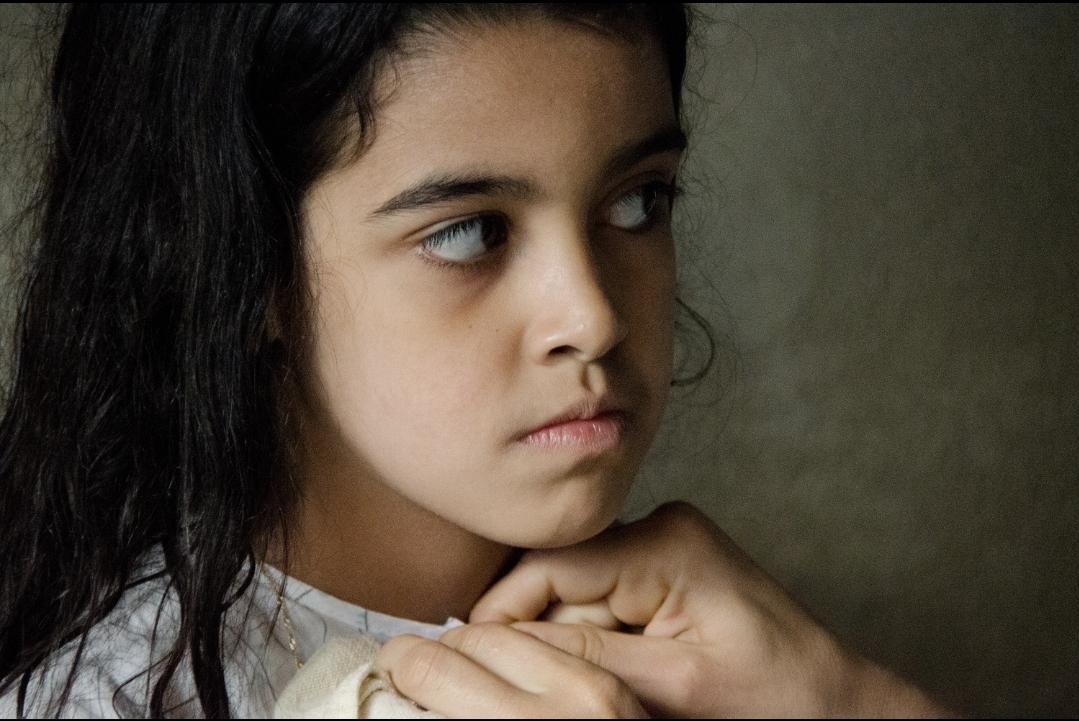
A small Brazilian village on decline sets the stage for writer/director Gabriela Amaral Almeida’s dark and spiritual drama, The Father’s Shadow, centered on nine year-old Dalva (Nina Medeiros), her father Jorge (Julio Machado) and his sister, Cristina (Luciana Paes).
Jorge, a construction worker regularly exposed to unsafe conditions, is forced to deal with the death of his wife and the prospects of Cristina moving in with her new boyfriend who is self-employed. Meanwhile, Dalva, who usually frequents Cristina’s garden, adheres to a more esoteric coping mechanism in a form of witchcraft shared only between her and her Auntie.
Further foreshadowing lurks about as Jorge learns the the unassuring nature of his employment, and Dalva’s latest hobby starts to rub off the wrong way on her closest friend, Abigail. The biggest culprit, however, seems to be the torment that lurks in Jorge’s wake when spirits begin to walk among Dalva and her father, affecting them both in a way that soon threatens to pull them apart.
Indeed, the road to paradise is paved in blood in Almeida’s The Father’s Shadow, though this sort of conclusion is moreso suggestive depending on the viewer. The air of tragedy is felt all around, with Dalva’s use of witchcraft, though a double-edged sword in the long run, noticeably feels less endagering than Jorge’s increasing grief and delirium.
The most intriguing part of the story though, is young Ms. Medeiros’ impressive and consuming immersion into the role of Dalva. Like all children, her character is a sponge – young and still vulnerable, but highly observant and intuitive with her sensory perception. She’s curious to a fault, wise, self-assured and resolute, and a true believer knowing in her heart that things will be okay.
The Father’s Shadow plays well into the hands of fans who love classic European horror, and even the genre itself becomes a pivotal to Dalva’s development, from various set pieces to a striking climatic crescendo in the film’s minimal score near the end of the film.
Pensive and grim with a touch of emotive beauty and resonance, it’s a story about a young girl who wants her family back together regardless of the taboos of her preferred method. It’s a darkly refreshing and rewarding tale of tragedy, love, and effectively, one of remarkable faith through constant nourishment, and knowing that when one door closes, eventually, another one opens.
